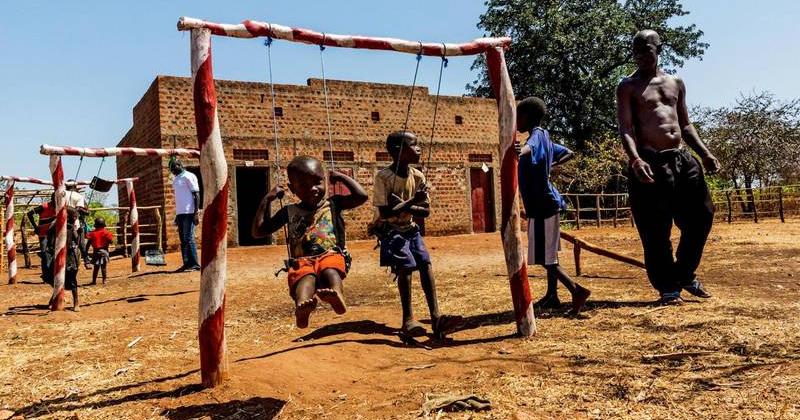Among religious communities, among the northern communities scarred by war, in the family: Being able to live alongside one another in peace is the main concern faced by the second country the Pope is due to visit on his African tour.
“There will be religious, lay, young and elderly people coming to Kampala from all over Uganda; there is excitement and joy in the air and people are preparing both spiritually and materially for the Holy Father’s visit: all Ugandans are getting ready for his arrival.” This is how Mgr. Matthew Odong, Vicar General of the Archdiocese of Gulu in Northern Uganda, sums up the atmosphere in the country just days before Pope Francis is due to embark on his visit on 27 November. The country in the Great Lake region will be the second stop along the Pope’s apostolic itinerary. He will be coming from neighbouring Kenya but the situation he will come across in Uganda is very different in many ways.
Just like Kenya, Uganda is now a peaceful nation too but this was achieved at a high cost. Since the early 80s there had been a never-ending series of clashed and civil conflicts : first, the one that brought Yoweri Museveni to power in 1986. He is still head of State today. Then the one which lasted until 2008 and saw the government fighting the northern rebels, especially the Lord’s Resistance Army led by fanatic warlord Joseph Kony. “We suffered a great deal, in many different ways,” Mgr. Odong recalled. His diocese was hit hard by rebel attacks and the reaction of the army. “This is why I’m expecting the Pope to put the emphasis on unity, on working together as children of God”. In this sense, the monsignor said, the Pope’s visit is a sort of ideal follow-on of the last papa visit to the country: “Uganda,” he said, “is expecting a message of reconciliation, after John Paul II’s message of hope in 1993. He came here as the Good Shepherd, to remind everyone that despite all the suffering, God has not forgotten us and is still with us.”
Uganda is already sending out one sign of unity ahead of Francis’ visit: he is admired even outside the Catholic Church which accounts for 47% of faithful. “The Pope is a much loved figure: even Anglicans and Muslims view him as someone who can bring a valid message for the whole country and the whole of humanity,” the general vicar of Gulu went on to say. Once the Pope has left the country, this task will also be in the hands of the local Church: the formation of the clergy and the laity is essential and as Bishop of Rome, Jorge Mario Bergoglio has often emphasised this. “I believe that as a pastor, the Pope will talk about this ere too,” Mgr. Odong predicted, “the involvement of everyone in the evangelisation mission is fundamental, it is something we are all called to in the Baptism.”
But other than spiritual, political or social, cohesion, the prelate said, is also to do with the family. “Families are the cells and the nucleus of society: strong families strengthen the Church and society.” Herein lies what the monsignor calls one of the most pressing challenges for the Church: ensure that these values are put into practice. “Domestic violence,” he recognised, “is still a problem: we need to work on this and we are trying to address the issue through dialogue with the parents, whom we encourage not to use force. It does not help children’s development and creates conflict. It is destructive and therefore contrary to God’s plan. The life Christ calls us to lead must find its expression first and foremost in the family, at home, in the life parents and children share together. I hope Francis will speak about this too.”
